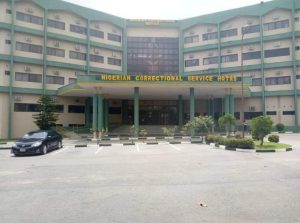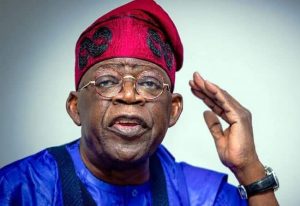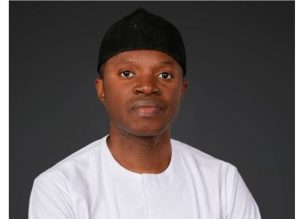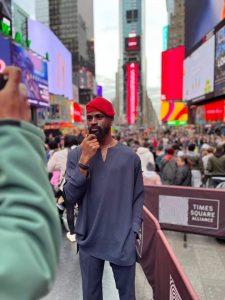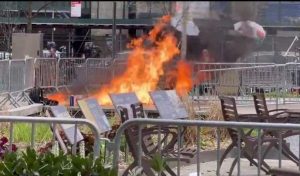NigeriaDecides2023: Only 27% of eligible voters decides who becomes Nigeria’s presidential election | GOVERNMEND
Mr Tinubu, the winner of the election, has a total of 8,794,726 votes, which accounts for 10.08 per cent of all eligible voters.

Only 25,286,616 – about 28.63 per cent– of all eligible voters in Nigeria, participated in last Saturday’s Presidential election, the election data has shown.
There are a total of 93,469,008 registered voters in Nigeria but only 87,209,007 – 93.3 per cent– collected their Permanent Voter Cards (PVCs), making them the only ones eligible to vote in the 2023 general elections, according to the electoral commission, INEC.
Last Saturday, the Presidential and National Assembly elections were held across the country and the Governorship and States Houses of Assembly elections scheduled for 11 March.
However, by the total number of accredited voters, the elections data shows that only 28.63 per cent of all eligible voters participated in the February elections.
The low turnout of voters have characterised Nigerian elections, and have witnessed a steady decline which reached a new low during last week’s presidential and National Assembly polls.
In 2011, voter turnout was at what can now be described as an impressive 53.7 per cent of the voting population. By 2015, it dropped to 43.7 per cent and 34.75 per cent in 2019.
The data analysed by PREMIUM TIMES revealed that all the 18 candidates in the February elections received a total 24,025,940 votes, which is 27.55 per cent of the eligible voters.
The top four candidates –APC’s Bola Tinubu, PDP’s Atiku Abubakar, LP’s Peter Obi and NNPP’s Rabiu Kwankwaso– got 23,377,466 or 26.81 per cent of all eligible voters, and 97.30 per cent of the total number of the total valid votes. i.e. the total number of votes received by all political parties involved in the elections –excluding rejected votes.
The cumulative votes of the remaining 14 political parties was 648,474 or 2.70 per cent of the total valid votes.
Mr Tinubu, the winner of the election, has a total of 8,794,726 votes, which accounts for 36.61 per cent of total votes, and 10.08 per cent of all eligible voters.
Rejected, Cancelled Votes
Meanwhile, 939,278 votes or 3.76 per cent of the total votes cast were rejected. Also called invalid votes, a vote is rejected when the choice of the voter is not clear or when the voter selected multiple parties on the same ballot paper.
This is lower compared to 1,289,607 or 4.51 per cent (of 28,614,190 total votes cast) rejected votes in the previous 2019 elections.
Borno, Delta and Cross River states have the highest number of rejected votes when compared with the total number of the votes cast in the individual states.
Leading on this list is Borno State, which has the highest number of rejected votes with 32,658 or 6.56 per cent of the 497,945 total votes cast in the state rejected. In Delta 39,309 or 6 per cent of the total 654,650 votes cast in the state were rejected. In Cross River 24,608 or 5.57 per cent of the total 441,576 votes cast in the state were rejected.
Anambra, Ekiti and Plateau have the least number of rejected votes with 1.72 per cent, 2.00 per cent and 2.07 per cent of the total votes cast of the states respectively.
In the meantime, votes were cancelled in at least 1,566 polling units with 886,026 eligible voters, according to the data gathered from the pronouncements of state collation officers at the National Collation Centre, Abuja. The cancelled votes make up at least 3.55 per cent of the total votes cast.
Votes are considered cancelled in polling units where the voting procedures are violated. In almost all the states, it is due to over voting, according to the collation officers.
Over voting happens when the total number of votes cast in a polling unit exceeds the number of accredited voters on the Bimodal Voter Accreditation System (BVAS).
Other reasons, according to the state collations officers, are refusal of voters to use the BVAS or bypassing of the BVAS, insecurity, disruption of voting activities, violence, threat of violence, malfunctioning of the BVAS and the destruction of voting materials.
When any of these happens, the result of the polling unit is cancelled. Therefore, the number of cancelled votes in this piece refers to the total number of eligible voters in such polling units, or regions. (i.e total number of collected PVCs in the region or polling unit).
Also, the data on cancelled votes used in this story is limited to the pronouncements by the stares collation officers at the National Collation Centre.
It is also limited to 28 states including the Federal Capital Territory.
We couldn’t get the total number of cancelled votes in Adamawa, Jigawa, Lagos, Enugu, Oyo, Ogun, Osun, Kwara, and Ekiti states as their respective state collation officers did not specify when announcing results.
According to the available data, the North-west region recorded the highest number of cancelled votes with 408,511 or 46.11 per cent of the cancelled votes. It is followed by the North-central where 196,213 or 22.15 per cent of the total cancelled votes were recorded. While the South-south recorded 128,353 or 14.49 per cent of the cancelled votes, the South-east recorded 87,385 or 9.86 per cent.
The North-east recorded 62,408 or 7.04 per cent of all the cancelled votes and the South-west recorded 3,156 or 0.36 per cent of the cancelled votes. Only one South-west state, Ondo, was sampled here.
Sokoto, Zamfara, Kano and Kogi recorded the highest number of cancelled votes, according to the available records.
The state with the highest number of cancelled votes is Sokoto state, with 103,089 cancelled votes, which make up 11.63 per cent of the total cancelled votes. It is followed closely by Kano with 97,484 or 11.23 per cent, and Zamfara with 103,089 or 11 per cent of the total cancelled votes. Kogi State recorded 85,556 of 9.66 per cent of the total cancelled votes.
Source: Premium Times

